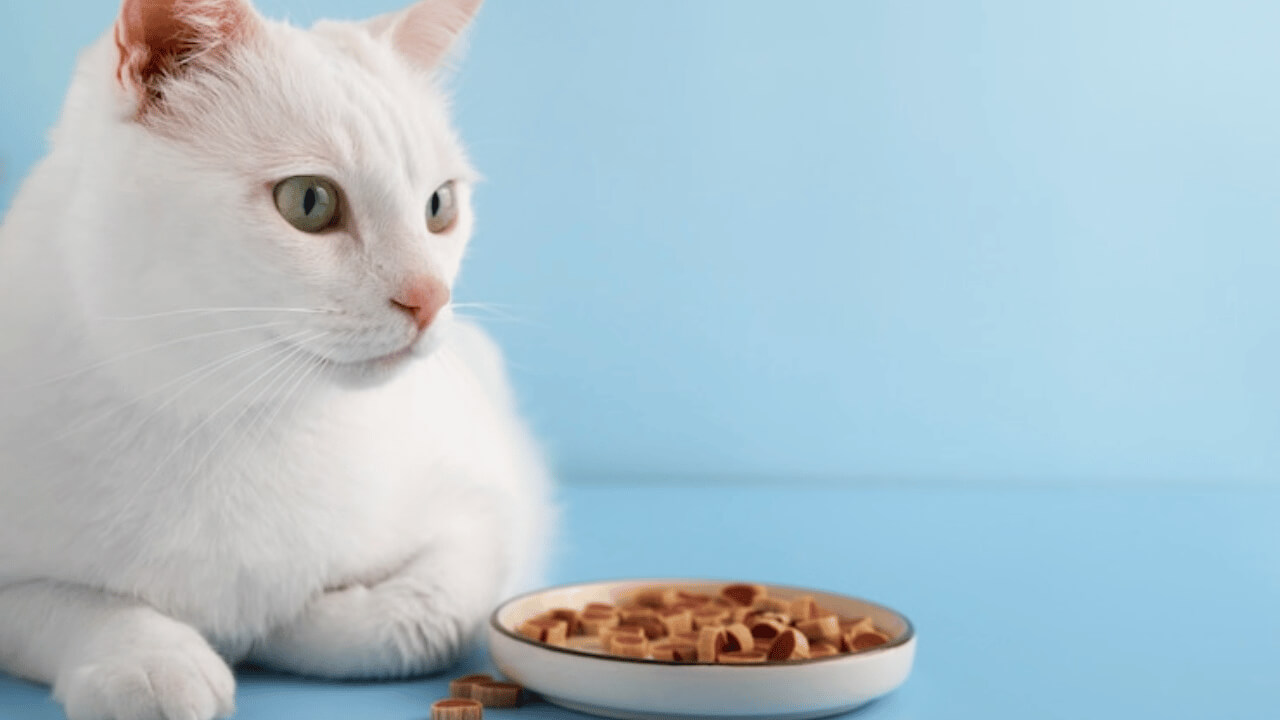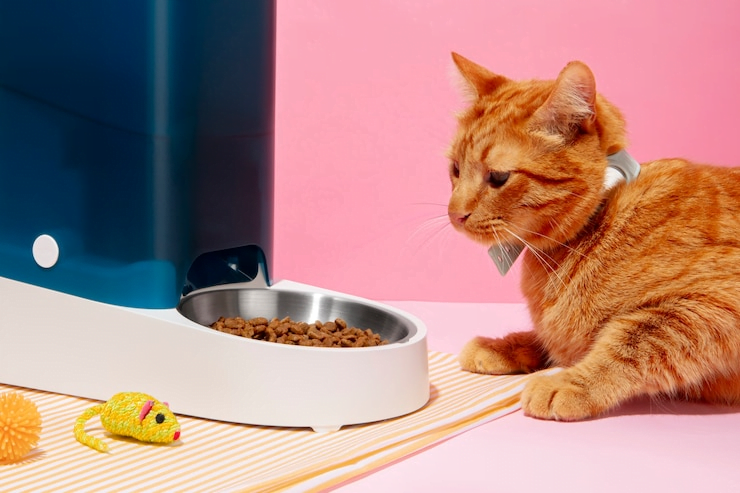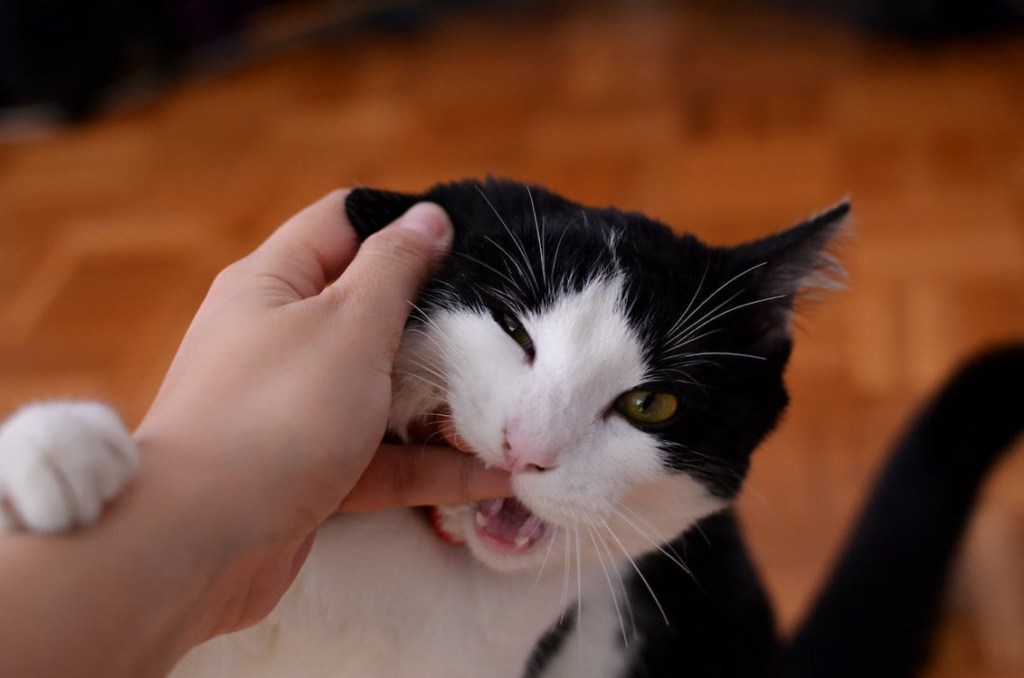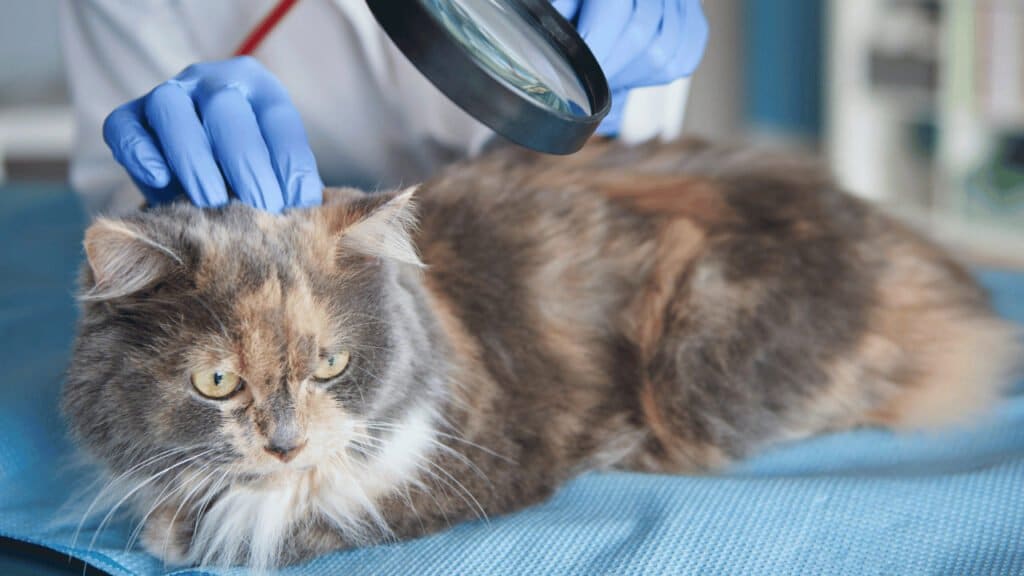If you’ve noticed your cat breathing rapidly and purring simultaneously, it can be a cause for concern and confusion. Cat Breathing Fast and Purring, or tachypnea, coupled with purring, which is typically a sign of contentment, presents a seemingly contradictory state.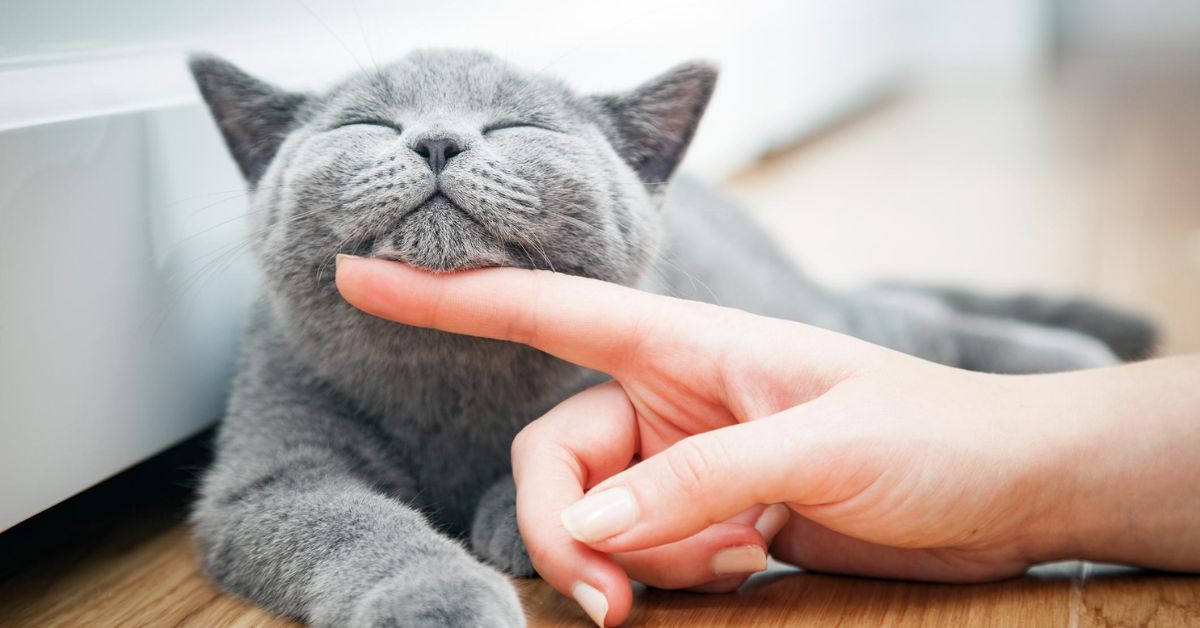
While purring is often associated with happiness and relaxation, cats also purr when they’re in pain or distress. Rapid breathing, on the other hand, can indicate various underlying issues ranging from mild to severe. The potential reasons behind this behavior is crucial for determining whether your cat needs immediate veterinary attention. Various factors, such as physical exertion, anxiety, respiratory issues, or even heart conditions, could contribute to these symptoms.
This introduction aims to provide an overview of the possible causes and emphasize the importance of seeking professional veterinary advice to ensure your cat’s well-being. By understanding these vet-approved facts, you can better assess your cat’s health and take appropriate action.
How do I Know if My Cat Breathing Fast and Purring?
If your Cat Breathing Fast and Purring, it’s crucial to assess the situation. Check for rapid breathing, with a respiratory rate exceeding 30 breaths per minute, which could indicate respiratory distress. Observe for other clinical signs such as open-mouth breathing, abdominal breathing, or loud breathing.
These symptoms can be associated with conditions like respiratory infections, heart disease, or an abnormal buildup of fluid in the chest cavity, known as pleural effusion. A steady supply of oxygen is vital, and any lack of oxygen might suggest a medical emergency.
If your cat’s breathing rate remains elevated for more than a couple of hours, or if it’s experiencing additional symptoms like not eating or showing signs of distress, seek immediate veterinary medical advice. Diagnostic tools such as chest X-rays, blood tests, and a physical exam can help identify underlying issues and guide the appropriate treatment.
Why Is My Cat Breathing Fast?
Rapid breathing in cats, known as tachypnea, can be caused by several factors. If your cat’s respiratory rate exceeds 30 breaths per minute, it could indicate respiratory distress. Conditions such as respiratory infections, heart disease, or pulmonary edema can lead to heavy breathing.
Fluid buildup in the chest cavity, known as pleural effusion, or a heart murmur can also affect oxygen levels. Stress or overheating may cause faster breathing temporarily. Observe for clinical signs like open-mouth or abdominal breathing, which could suggest a medical emergency. If your cat’s breathing rate remains elevated for more than a couple of hours or if it shows additional symptoms like not eating, seek immediate medical advice.
Diagnostic tools like chest X-rays and blood tests can help identify underlying issues and guide treatment. Always monitor your cat’s behavior and breathing patterns to ensure they receive prompt and appropriate care.
What to Do If Your Cat is Breathing Fast?
If your Cat Breathing Fast and Purring, exceeding 30 breaths per minute, it could be a sign of respiratory distress. First, ensure your cat is in a calm, cool environment to help reduce any emotional distress. Check for clinical signs such as open-mouth breathing, abdominal breathing, or loud breathing, which might indicate serious conditions like respiratory infections, heart disease, or pleural effusion.
Monitor the breathing rate and other symptoms for a couple of hours. If the rapid breathing persists or is accompanied by additional symptoms like not eating or a visible heart murmur, seek immediate medical advice.
Diagnostic tools such as chest X-rays, blood tests, and a physical exam will help identify any underlying issues like fluid buildup or pulmonary edema. Early detection and treatment are crucial, so consult your vet promptly to ensure your cat receives the necessary care and maintains a steady supply of oxygen.
How to tell if your cat is breathing fast?
How to tell if your cat is breathing fast A healthy cat’s respiratory rate, the breaths per minute at rest, is between 20-30. Monitor for signs of respiratory distress, which can indicate a serious condition. 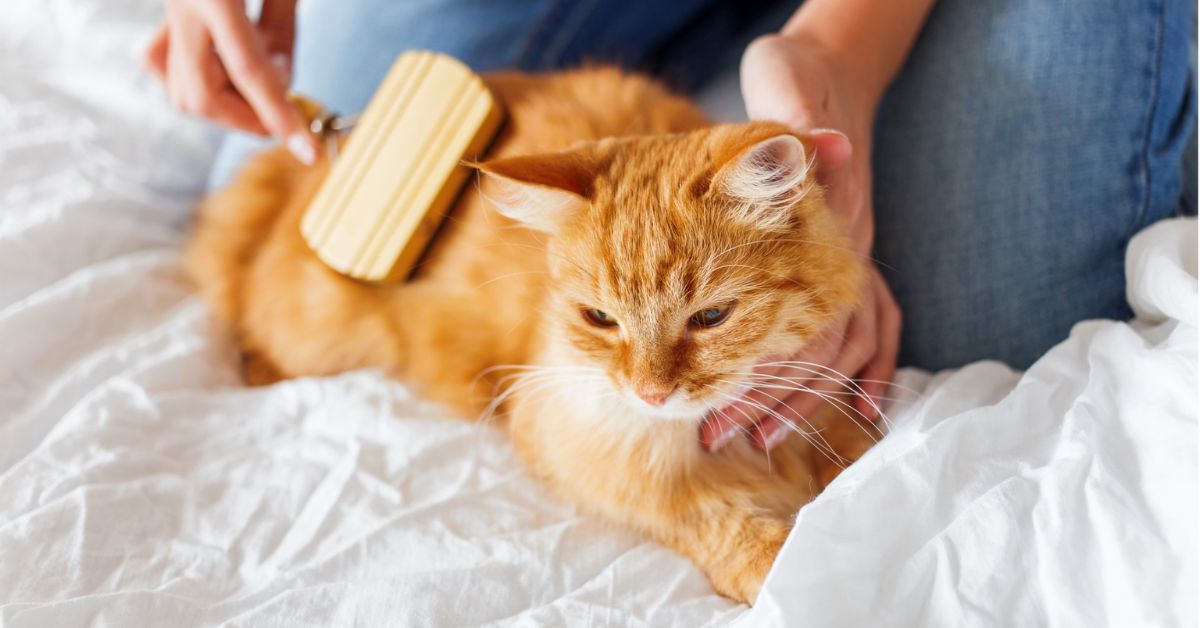
Look for rapid breathing, especially open-mouth or abdominal breathing, alongside heavy breathing or wheezing. These, with a bluish tinge to the gums, can signal a medical emergency.
Rapid breathing can be caused by various issues like respiratory infections, heart disease, or fluid buildup in the chest (pleural effusion). While short-term faster breathing can be due to emotional distress, persistent rapid breathing, especially with other signs, requires a vet visit.
How to treat your cat’s rapid breathing?
Unfortunately, there’s no safe home remedy for rapid breathing (tachypnea) in cats. It’s a symptom, not a diagnosis, and indicates an underlying issue. While waiting for your vet visit, create a calm and quiet environment for your cat to minimize stress. Treatment will depend on the cause identified by your veterinarian.
For respiratory infections, antibiotics might be prescribed. Heart disease may require medication adjustments or even hospitalization for supportive care. In severe cases, oxygen therapy may be needed to ensure a steady supply of oxygen to your cat’s body. Early diagnosis is key. A veterinarian can perform a physical exam, listen for a heart murmur, and check the chest for signs of fluid buildup (pleural effusion).
Blood tests might be needed to assess oxygen levels, red blood cells, and overall health. Depending on the findings, diagnostic tools like chest X-rays may be necessary. Remember, this information is for informational purposes only and should not replace professional veterinary advice. If your cat is experiencing rapid breathing, lethargy, or other concerning signs, consult your veterinarian immediately for proper diagnosis and treatment.
What Is the Normal Respiration Rate for a Cat?
In a normal cat with no diseases impacting the respiratory system, the breathing rate should be between 15–30 breaths per minute. You can count this rate by watching your cat’s chest rise and fall as they breathe. If your cat’s respiratory rate seems slightly lower when at rest, it may not be an emergency, but it’s worth mentioning to your vet.
For example, if your sleeping cat has a respiratory rate of 12 but shows no respiratory distress and doesn’t have a decreased respiratory rate while awake, it may be normal for your cat, but there may also be an underlying health condition that needs evaluation by a vet. Keep an eye out for signs of respiratory distress, such as rapid breathing, heavy breathing, or open-mouth breathing.
If you notice any concerning changes, seek medical advice promptly. Remember, understanding your cat’s vital signs can help you monitor their overall health and catch any issues early on.
Is My Cat Purring or Breathing Heavily?
When your cat purrs, it’s usually a sign of contentment or pleasure. However, if your cat is also breathing heavily while purring, there are several possible reasons. First, excitement or exertion during playtime or attention from you can lead to loud purring and heavy breathing.
Stress or anxiety might also cause a cat to purr excessively and breathe heavily as a self-soothing mechanism. However, be cautious: heavy breathing while purring could indicate respiratory distress. Respiratory issues like asthma or pneumonia may cause a cat to struggle with breathing. If your cat shows other symptoms like coughing or wheezing, seek veterinary attention promptly.
Heart disease can also lead to fluid buildup in the lungs, resulting in heavy breathing. If you notice concerning signs, consult a vet to determine the underlying cause and develop a treatment plan. Remember, understanding your cat’s vital signs helps monitor their overall health and catch any issues early on.
Conclusion
Your cat’s breathing patterns are crucial for its health. Rapid breathing and purring can indicate various issues, from stress to serious medical conditions. Monitor your cat closely, and seek veterinary advice if you notice any persistent or severe symptoms. Regular check-ups, a healthy lifestyle, and a stress-free environment are essential to ensure your cat remains happy and healthy. Always prioritize your cat’s well-being.
FAQ
Should I be worried if my cat is breathing fast?
Breathing too quickly may indicate a dangerous underlying illness. Your cat’s health depends on the blood oxygenating properly, so fast breathing even at rest is a symptom that should never be disregarded.
Why does my cat breathe fast when happy?
At repose, cats can breathe as many as 16–40 times per minute. They might breathe as many as thirty or forty times per minute if they’re playing hard or are stressed out, but as soon as their enthusiasm wears off, this rate should return to normal. Your cat may breathe even more slowly when they are sleeping or relaxing (they may also snore).
How to tell if a cat is in pain?
Depressed and temperamental; more easily agitated.vocalization, such as persistently meowing, groaning, hissing, or growling unpleasantly or urgently. Your cat may move away from people or act violently when approached or touched to actively or passively avoid being handled when they are in discomfort.
Why is my cat purring so hard?
If your cat is feeling overwhelmed, they may purr so loudly to calm themselves. Endorphins are naturally occurring molecules released when you purr, and they have the power to reduce pain, stress, and anxiety.

